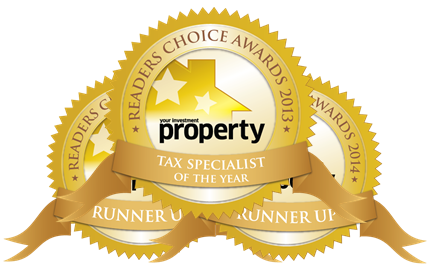By David Shaw
20/08/2015
 Ever since the introduction of the Goods and Services Tax (GST) in 2000 the GST treatment of real property transactions has been one of the most misunderstood and complicated areas of the GST legislation.
Ever since the introduction of the Goods and Services Tax (GST) in 2000 the GST treatment of real property transactions has been one of the most misunderstood and complicated areas of the GST legislation.Any person dealing in property – you buy, sell, lease or develop property – may be considered to be conducting an enterprise which will require them to register for GST if the turnover from those activities is more than the GST registration threshold (currently $75,000pa).
Obtaining advice to determine if you are “carrying on an enterprise” and the possible GST consequences involving real property is extremely important as most property transactions involve large dollar figures and any penalties for getting it wrong can be quite substantial. Even a one off transaction may constitute a business transaction which may require the entity or individual involved to be registered for GST. This is particularly the case for development activities.
After determining if you are carrying on an enterprise the next issue to consider is whether the real property transaction is exempt from GST.
The GST treatment of property transactions can vary depending on whether the property is classified as commercial, residential or new residential.
Residential premises include houses, units and flats. Properties are residential premises if they are occupied, can be occupied or are intended to be occupied as residences. Transactions involving residential property are generally input taxed, ie they are exempt from GST to the extent they are used for residential purposes.
New residential premises are residential premises that:
- Have not been sold as residential premises before
- Have been created through substantial renovations
- New buildings replace demolished buildings on the same land
New residential premises that have been continuously rented for five years will no longer be considered new residential premises. Note: The property may still be considered new residential premises if it has been actively marketed during this period.
If you sell residential premises that are no longer new residential premises ie the property has been continuously rented for five years the sale will be input taxed.
Commercial residential property includes
- Hotels and motels
- Hostels and boarding houses
- Caravan parks and camping grounds
The sale of commercial residential premises can also be treated:
- As a going concern
- Under the margin scheme
- The seller did not use the margin scheme to work out the GST included in the purchase price or
- The sale was not a GST free sale of a going concern.

David Shaw is the CEO of WSC Group: Certified Practising Accountants and Business Advisors, and
was voted Property Tax Specialist of the Year in the Your Investment Property 2013 Readers Choice Awards (as well as runner up in 2012 & 2014 ).
*The advice published on social media mediums by WSC Group is of a general nature and does not constitute specific financial advice. For a detailed financial strategy you should consult with a qualified financial advisor before making any investment decision.
Disclaimer: while due care is taken, the viewpoints expressed by contributors/sponsors do not necessarily reflect the opinions of Your Investment Property.

